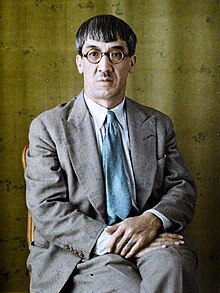Tsuguharu Fujita (1886-1968)
Born in 1886 in Tokyo, Tsuguharu Fujita emerged as a pivotal figure bridging Eastern and Western artistic traditions. His early life in Japan laid the foundation for a lifelong journey in art, marked by a distinct blend of Japanese and European influences. Fujita moved to Paris in the early twentieth century, where he quickly became an integral part of the vibrant artistic community, adopting the French version of his name, Léonard Foujita. His unique style, characterised by the fusion of Japanese ink techniques with Western painting methods, garnered significant attention and acclaim, making him one of the most celebrated artists of his time.
In Paris, Fujita's work was distinguished by its delicate lines and a novel use of white space, a homage to his Japanese roots, while simultaneously embracing the European artistic movements surrounding him. His paintings, often featuring cats, women, and children, are marked by a whimsy and depth that transcended cultural boundaries, allowing him to achieve a rare universal appeal. His involvement with the School of Paris, alongside contemporaries like Modigliani and Picasso, further solidified his status as a significant contributor to the modern art movement.
Throughout his career, Fujita's art underwent several transformations, reflecting his experiences and the changing times. During World War II, he returned to Japan, where his work took on more nationalistic themes, a period that remains controversial. However, post-war, Fujita's focus shifted back to a more peaceful and introspective approach, culminating in his conversion to Catholicism and a series of works inspired by religious themes. His last major work was the decoration of a chapel in Reims, France, which he completed in 1966, not long before his death on January 29, 1968 in Zürich, Switzerland.
 |
 |
 |

Signature of the artist Tsuguharu Fujita

